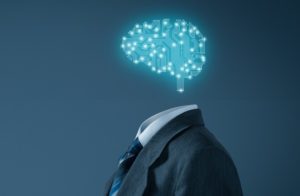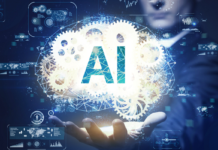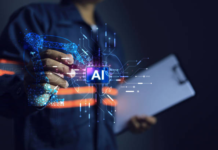
Robolawyers, the use of Artificial Intelligence (AI) in the legal profession has become the most discussed topic these days. The growing concern among lawyers regarding the impact of AI on legal research, contract data mining, contract management, and predictive analytics is causing great anxiety.
In the 2000s when law firms were gaining prominence, there was a huge need for the first-year associates and these entry level associates would do the routine tasks. Post the 2008 financial crisis, people have started looking at cutting costs in legal services, and technology is replicating the repetitive tasks these entry level lawyers would do at the start of their careers.
Legal counsels in big business are looking at cutting costs by taking advantage of the saving offered by technology. A Deloitte study in 2016 predicted that about 114,000 legal jobs are likely to be automated in the next 20 years. The report further predicted another 39% of jobs were high risk of being made redundant in the next two decades.
AI could be used for data intensive or document intensive work such as due diligence, discovery, compliance, bankruptcy, insurance or contract management, raise red flags within companies to identify potential fraud and other misconduct and do legal research.
To take, for example, Luminance, a market leading artificial intelligence platform for the legal industry, claims to understand language the way humans do, in volumes and at speeds that humans will never achieve. It claims to find hidden risks faster, provide accurate review and make teams more productive with the click of a button allowing lawyers to focus on what matters.
This clearly indicates that technology is going to fundamentally change the way we approach big data. However, technology cannot replace various legal roles especially in litigation where you require a judgment. As observed by Philip Marshall QC – The lawyer interaction with the tribunal cannot be replaced as in certain case human touch and knowledge is irreplaceable.
Nevertheless, AI will push the legal sector by allowing lawyers to provide superior legal counsel at a higher level.
Artificial Intelligence is the ability of a computer or other machine to perform actions thought to require intelligence. Among these actions are logical deduction and inference, creativity, the ability to make decisions based on past experience or insufficient or conflicting information, and the ability to understand spoken language.
It works on the basis of the input received to deliver an output and tries to constantly learn through the inputs received. It should be understood that AI is self-learning and uncovers anomalies or even missing data without being told to look for them and the more you use it, the better it becomes.
Artificial intelligence allows one to process huge amounts of data in a very short span of time and the ability to give accurate and precise answers is astonishing. AI will disrupt the way we do legal business. On one hand, AI will invariably drive legal costs down and make legal services more affordable, on the other hand, AI might lead to more job creation than job reduction.
In the US, law schools are gearing up by incorporating technology such as computer coding into their curriculum. Stanford University set up Codex in 2008 creating a network of people harnessing technology to improve the legal system.
AI in the coming days will become an indispensable tool in the hands of every lawyer. As Mr. Sanjay Padode, Secretary, CDE opines, AI will disrupt the market and take steps towards democratizing justice by making legal services affordable to everyone.
Those who do not adopt it will be left behind and those who do will be able to spend more time on bespoke activities such as on advising and developing strategies for their client. AI will not be able to replace the traditional lawyer but will empower a lawyer.
You will still need a lawyer to advise clients, write legal briefs, negotiate and appear in courts on behalf of your client. James Yaroon, Partner at a law firm says that strategy, creativity, judgment, and empathy – essential characteristics of a lawyer cannot yet be automated.
However, one has to be cautious with regard to data privacy, lack of regulatory framework and standards related to AI and legal ethics/standards of professional conduct within the AI context.
Micheal Krigsman for Beyond IT failure states that AI is surrounded by marketing hype, jargon, inflated expectations, and fear. The biggest fear being the loss of control from the lawyer to AI. This might cause chaos in the near term though.
However, there is nothing to fear as AI will only complement the legal sector. AI has come and is here to stay. Time has come for us to change our traditional mindsets and embrace AI in the legal sector and train our students and staff to make them future ready.
By: Mr. Subramanya Sirish Tamvada, Dean – IFIM Law College.



















